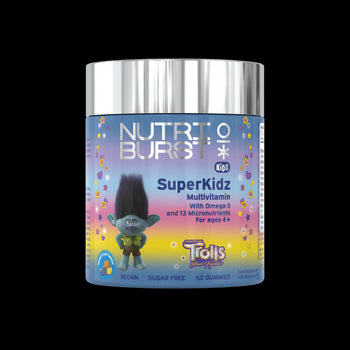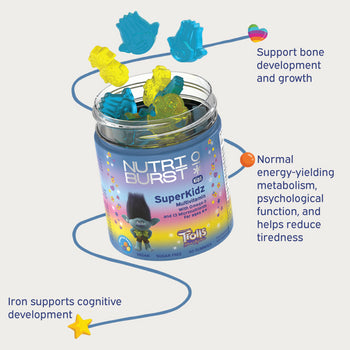How our food choices impact the environment
Written by Christianna Aristidou Karaolis

Food is intricately and deeply connected with so many aspects of our lives; our health, our celebrations, our emotions; and most recently an area that has gained more attention is food, the environment and climate change. And for good reason; our food choices; how that food is grown, produced, processed, transported, distributed, prepared, consumed, and disposed of has a profound effect on the environment on a global scale. So much so, that the United Nations estimates that around a third of human-caused greenhouse gas emissions - the cause of climate change and all its adverse effects- is linked to food. Of that third, the biggest percentage is from the agriculture industry and land use for food production. When we take a moment to appreciate the severity of these figures, it becomes clear that food is no longer just about human health, it also becomes about the planet's health.
In addition to the environmental costs of food production, another enormous food-related problem is waste. Managing food waste is not only responsible for considerable greenhouse emissions; producing food that isn’t then consumed, drives increased and unnecessary demand. Food waste generates around 8% of all human-caused greenhouse gas emissions with an estimated one-third of all the food produced in the world going to waste, according to the World Wide Fund for Nature.
A further dimension that must also be considered is the growing global population estimated to rise by another two billion people by 2050. Current human activities are having such a detrimental effect on the environment, causing many to have grave concerns that this population growth rate is unsustainable – both in terms of feeding this growing population and its effects on the environment. While there may be an ongoing debate on climate change; there is consensus on one thing: how we eat needs to change to be more sustainable; the World Health Organisation clearly states – “Climate change presents a fundamental threat to human health”
So, what can we do to shift to a more sustainable way of eating? And although the answer is simple, it does require a collective human effort:
- Eat less meat. Greenpeace unequivocally reminds us that the climate impact of meat is “enormous … equivalent to all the driving and flying of every car, truck and plane in the world”. It is estimated that if Western countries reduced meat consumption, increased plant food consumption and more countries adopted a more sustainable diet, global greenhouse gas emissions would be reduced by approximately 30%. Furthermore, eating more plant-based foods is considered by many experts in the field, a crucial step to fighting climate change, soil, air and water pollution, and other challenges exacerbated by industrial livestock production. Beef and lamb farming have the biggest climate footprint, while plant foods tend to have the smallest footprint.
From a nutrition perspective, eating more plant-based has repeatedly been shown in numerous studies to have improved health outcomes including considerably reduced risk of numerous chronic diseases. The definition of a win-win situation. And before anyone feels affronted at the thought of giving up their Sunday roast, all that is needed is a reduction, a collective reduction in meat consumption, which would decrease the demand for farmed livestock.
- Reduce food waste. Food waste is largely avoidable with some simple steps. Top of the list is planning; plan your weekly menu and buy what you intend to eat. This one change would also help us make healthier choices; having the ingredients we need to cook nutritious meals hand is far more effective than relying on willpower. At the end of a busy and tiring day, we are not going to go to the supermarket to buy ingredients for a healthy meal; we are going to choose what is convenient; which might mean that broccoli at the bottom of the fridge will go to waste. But if you have planned a balanced meal, and the ingredients are easily accessible, then you will cook them. Make the healthy choice the most convenient by planning.
- Utilise your freezer. Freeze fruit and vegetables that you know you’re not likely to eat and then add to dishes. Your freezer can be your second pantry and you’ll dramatically minimise your food waste with this one simple step. Vegetables are one of the most wasted food products with an estimated 170,000 tonnes of them wasted in the UK each year. This is completely avoidable; chop and freeze them before they turn bad and then add to curries, soups, stews, roasts, and pasta… we’ve shared one of our favourite no-waste recipes on our Instagram and it is delicious!
- Choose environmentally conscious companies. As consumers, we have power. Where we spend our money, and the brands we choose to buy from can collectively make a huge difference. Choose brands that have a stance on the environment and sustainability and ideally are carbon neutral. These companies care about the environment and at a time when we are facing such challenges due to climate change, they are the brands we should be supporting.
The harsh reality is that we need to make some changes; our current food habits are not sustainable. The beautiful flipside of this is that making these changes is better for the environment, more cost-effective and better for our health. When something is good for the planet, good for our wallets and good for our health; it feels like a step in the right direction we all need to take.
When it comes to wellness, we at Nutriburst believe that transparency is key. We're proud to tell you where our ingredients come from, and we want to be just as transparent about our sustainability initiatives. From offsetting CO2 emissions from our packaging to partnering with organisations that promote social and environmental stewardship, we are nurturing holistic initiative with our products, and supply chain, and where we give back as much as we take. We know that we still have work to do, but we're committed to doing our part in creating a healthier planet. We look forward to bringing you on the journey of nutrition, wellness, and the environment as we work towards a healthier future for our planet and its people.

















